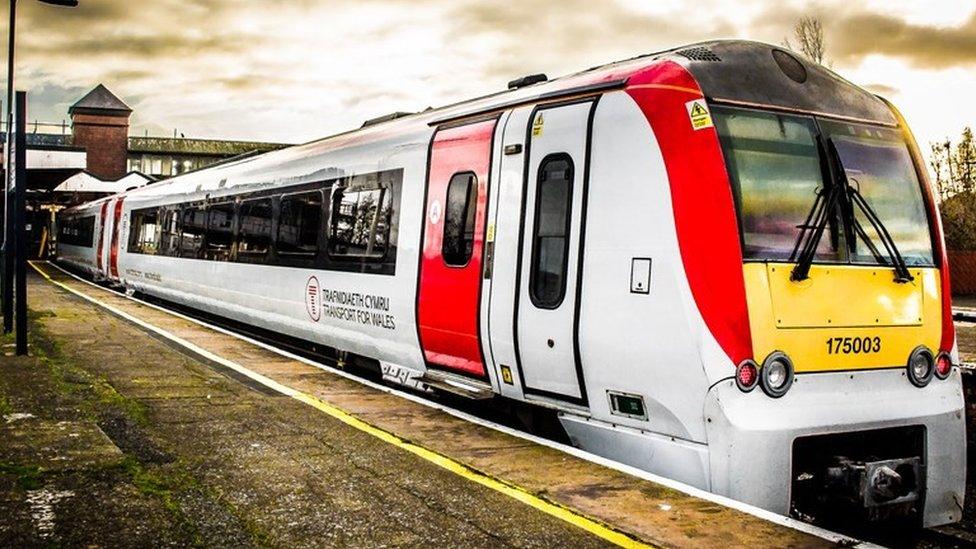HS2: Calls for project to be classed as 'England-only'
- Published
- comments
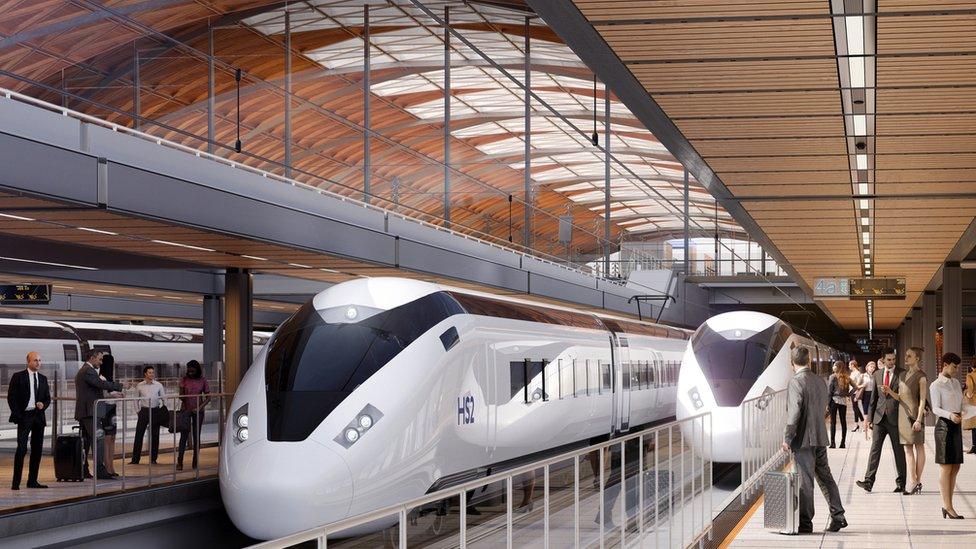
Wales stands to lose out financially from HS2 because it is currently classed as an England and Wales project
A cross-party group of MPs has called for HS2 to be reclassified as an England-only project so Wales receives proportional funds.
They said the UK government's own analysis concluded the rail project would produce "an economic dis-benefit to Wales".
The Welsh government called the classification of HS2 as an England and Wales project "unfair and biased".
The UK government said it had committed £1.5bn to Welsh railways.
HS2 is a high-speed rail line planned to link London with Birmingham and on to Manchester and Leeds.
The multi-billion pound project, which could see costs rise to £106bn, has been controversial after estimates that the Welsh economy could lose out due to inferior transport infrastructure.
The MPs want HS2 to be reclassified as an England-only project despite rail infrastructure not being devolved in Wales beyond the core valleys lines.
The Welsh government receives a proportional top-up to the budget when new spending is announced for devolved areas in England which will not apply to Wales, through what is known as "Barnett consequentials".
The report says while the Welsh government received "approximately £755m in Barnett consequentials" between 2015 and 2019 as a result of the Department for Transport spending money on HS2, it will not receive a proportionate amount because it has been classified by the Treasury as an "England and Wales project".
This has attracted criticism from the MPs because the rail line will run solely in England.
The Welsh Affairs Committee said: "It is a project of unprecedented size and complexity and has already created several thousand jobs as part of a supply chain that spans the country, including Wales."
But it said Wales would "not benefit in the same way as Scotland and Northern Ireland from Barnett consequentials arising from the HS2 project. This is despite the fact that UK government's own analysis has concluded that HS2 will produce an economic dis-benefit for Wales".
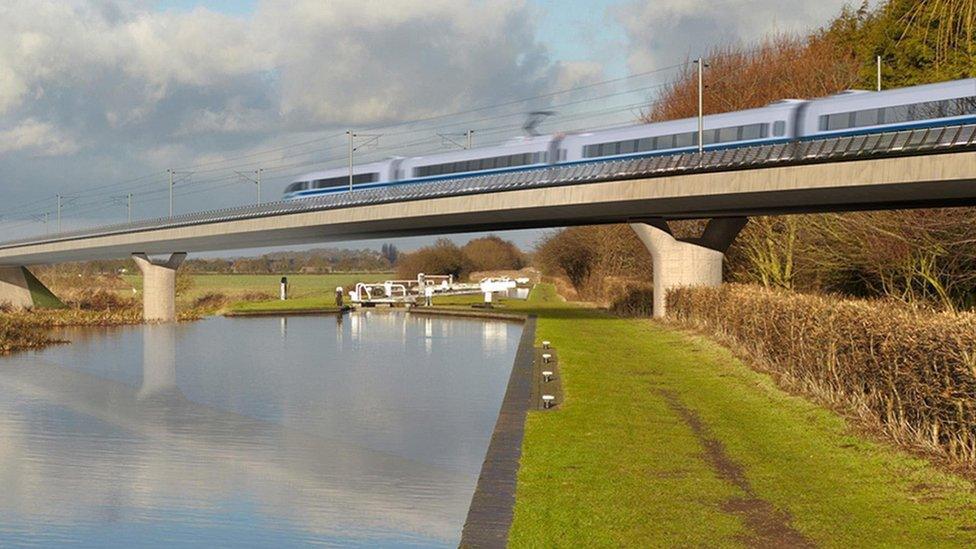
Trains would reach speeds of up to 250mph between London and Birmingham and beyond
It said HS2 could "yield direct benefits to Welsh rail passengers if it is accompanied by enhancements to the North Wales mainline, including upgrades at Chester and Crewe stations which will be required for full electrification of the North Wales mainline to proceed".
The report also calls for a new Wales Rail Board of Welsh and UK government bodies to identify areas where Welsh railways could be improved and invested in.
The MPs also have called on the UK government to bring forward proposals for greater connectivity between Swansea, Cardiff and Bristol by the end of 2021, calling the decision to cancel the electrification of the Cardiff-Swansea mainline "short-sighted and regrettable".
Further devolution?
The group, chaired by Conservative MP Stephen Crabb, said if clear benefits for passengers and freight users could be delivered by transferring powers over rail infrastructure from the UK government to the Welsh government then "the case for further devolution would be compelling".
But they said "few benefits to rail users have been identified" and the benefits of "existing management arrangements are considerable".
The Welsh government welcomed the calls to "address unfair and biased categorisation of HS2 as an England and Wales project, which continues to disadvantage rail investment in Wales".
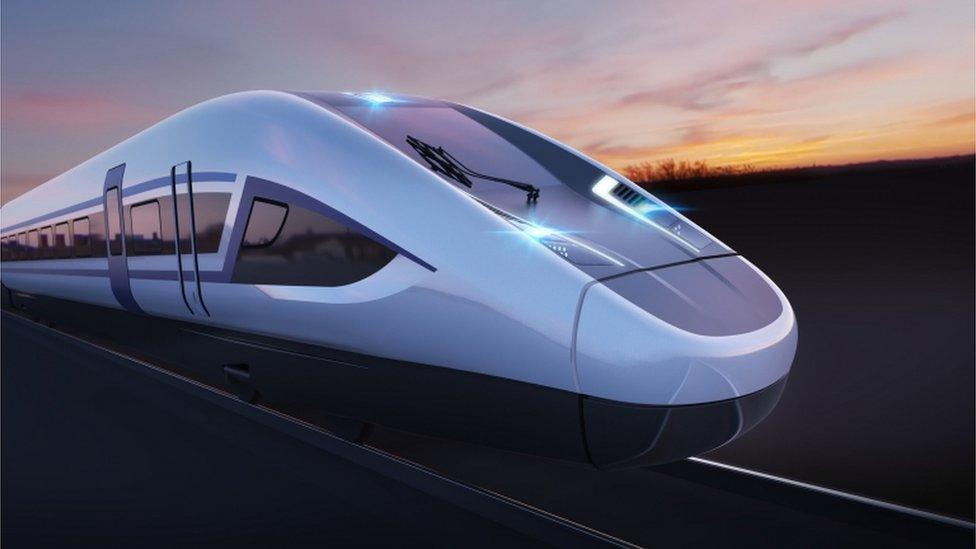
The Welsh government said it was "unfair and biased" for HS2 to be considered an England and Wales project
A spokesman said their "long term objective remains full devolution of the rail network and a fair funding settlement for rail infrastructure in Wales".
But they said "irrespective of where responsibility rests in the short term" they supported "close strategic collaboration" to "meet passenger needs" and "support our decarbonisation commitments".
A spokesperson for the UK government's Department for Transport said: "We have already committed a record £1.5bn to the Welsh railways in recent years and the recently announced Union Connectivity Review will look at how best to enhance transport links across the United Kingdom to improve connectivity."
The UK government has argued HS2 will boost reliability, connectivity and capacity on routes across the UK, including services into Wales.


- Published11 February 2020
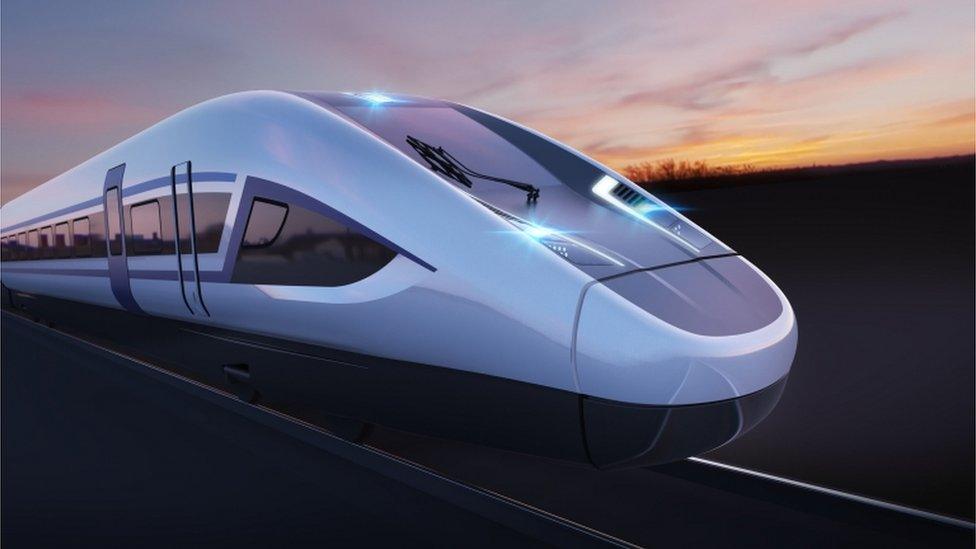
- Published20 July 2019
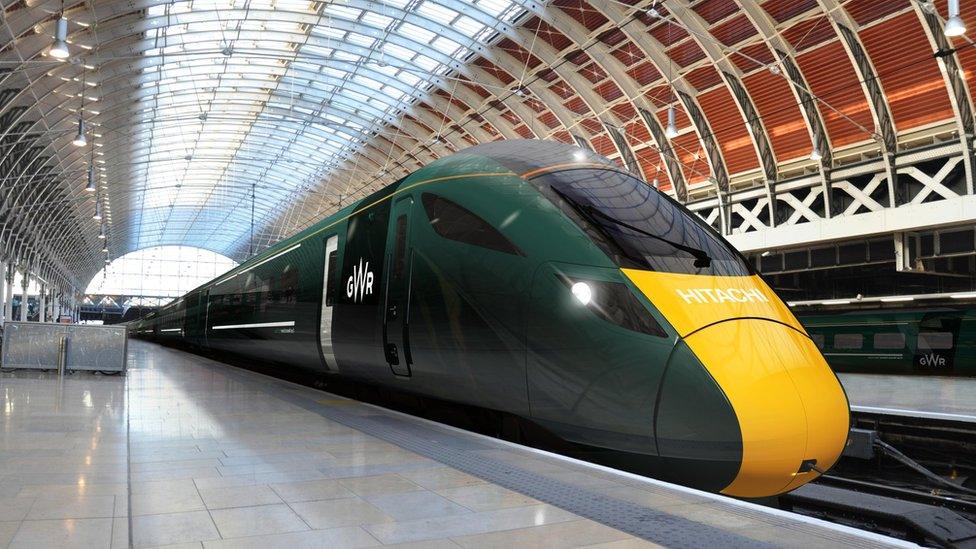
- Published23 June 2021
